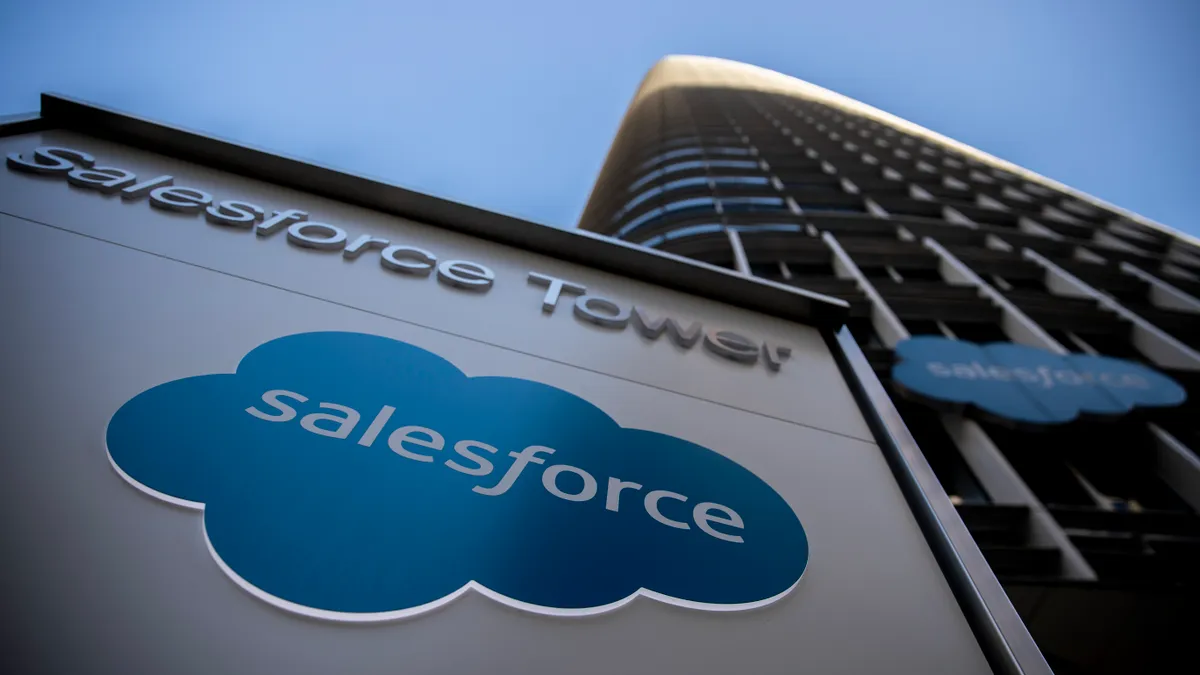Dive Brief:
- Salesforce will reopen its San Francisco office next month, making it the first of its U.S. locations to welcome employees back since the company paused on-site operations in response to the coronavirus pandemic. The company simultaneously announced April 12 that it will give employees the option to work from home through the rest of this year, at least.
- Salesforce will approach office reopenings in stages. It will first ask groups of 100 fully vaccinated volunteers "to work on designated floors in certain offices, following safety protocols and health mandates." Workers will be tested for COVID-19 twice weekly, and health officers will ensure compliance with safety measures. Next, offices will reopen at 20% to 75% capacity to both vaccinated and non-vaccinated employees, Salesforce said. Finally, offices will function at 100% capacity. "Vaccinations will still be encouraged and testing will be available where possible," Salesforce said.
- Globally, 17 of Salesforce's offices are open in the second stage, operating at reduced capacity. Most of these locations are in the Asia-Pacific region, according to Salesforce. Five offices are operating in the final stage, with one such worksite being in Sydney, Australia.
Dive Insight:
Several other high-profile tech companies have announced the details of the return-to-work plans that will revive — at least in part — on-site operations. Google plans to adopt a hybrid model that will allow certain employees to work in the office at least three days per week, according to reporting by The New York Times. Twitter announced last summer that team members can choose to work from home "forever," so long as their roles allow for the arrangement. Spotify, meanwhile, will allow its staff to choose whether to work at home, at an office or both.
In short, it appears many companies will implement some kind of hybrid arrangement, under which some employers create some blend of in-office and out-of-office work. The details vary, but experts have identified several challenges employers operating under such a model may face.
Remote work may create barriers that harm workplace culture and relationships, according to a March recommendation from leadership development firm ExecOnline. Despite this, a hybrid model appears to be in employees' favor. January survey results from PwC found that many workers want to continue working from home at least three days a week. But the respondents also said a physical office is important for collaboration and relationship building.













